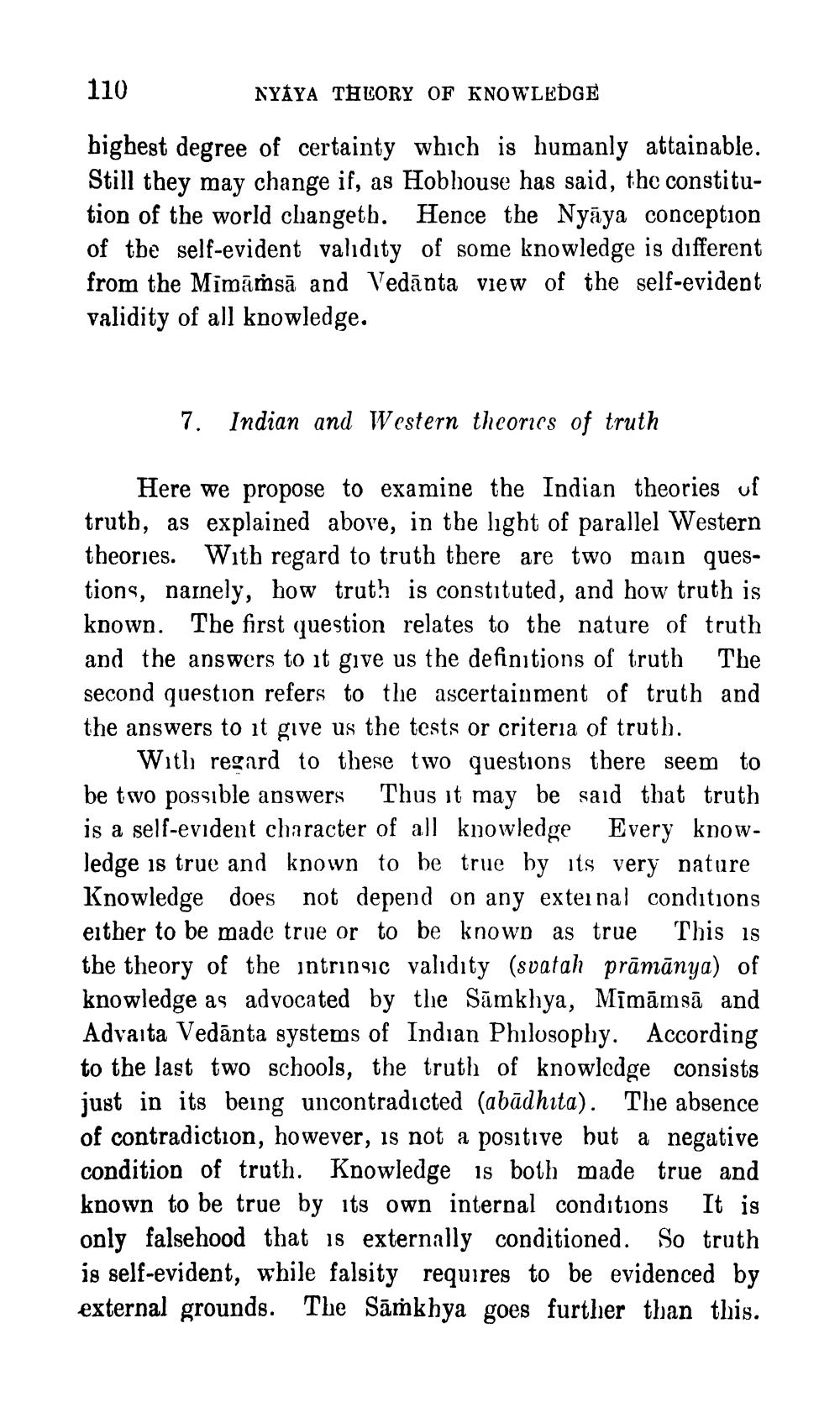________________
110
NYAYA THEORY OF KNOWLEDGE
bighest degree of certainty which is humanly attainable. Still they may change if, as Hobhouse has said, the constitution of the world changeth. Hence the Nyāya conception of the self-evident validity of some knowledge is different from the Mimāṁsā and Vedānta view of the self-evident validity of all knowledge.
7.
Indian and Western theories of truth
Here we propose to examine the Indian theories of truth, as explained above, in the light of parallel Western theories. With regard to truth there are two main questions, nainely, how truth is constituted, and how truth is known. The first question relates to the nature of truth and the answers to it give us the definitions of truth The second question refers to the ascertainment of truth and the answers to it give us the tests or criteria of truth.
With regard to these two questions there seem to be two possible answers Thus it may be said that truth is a self-evident character of all knowledge Every knowledge is true and known to be true by its very nature Knowledge does not depend on any external conditions either to be made true or to be known as true This is the theory of the intrinsic valıdıty (svatah prāmānya) of knowledge as advocated by the Sāmkhya, Mimāmsā and Advaita Vedānta systems of Indian Philosophy. According to the last two schools, the truth of knowledge consists just in its being uncontradicted (abādhita). The absence of contradiction, however, is not a positive but a negative condition of truth. Knowledge is both made true and known to be true by its own internal conditions It is only falsehood that is externally conditioned. So truth is self-evident, while falsity requires to be evidenced by external grounds. The Sāṁkhya goes further than this.




